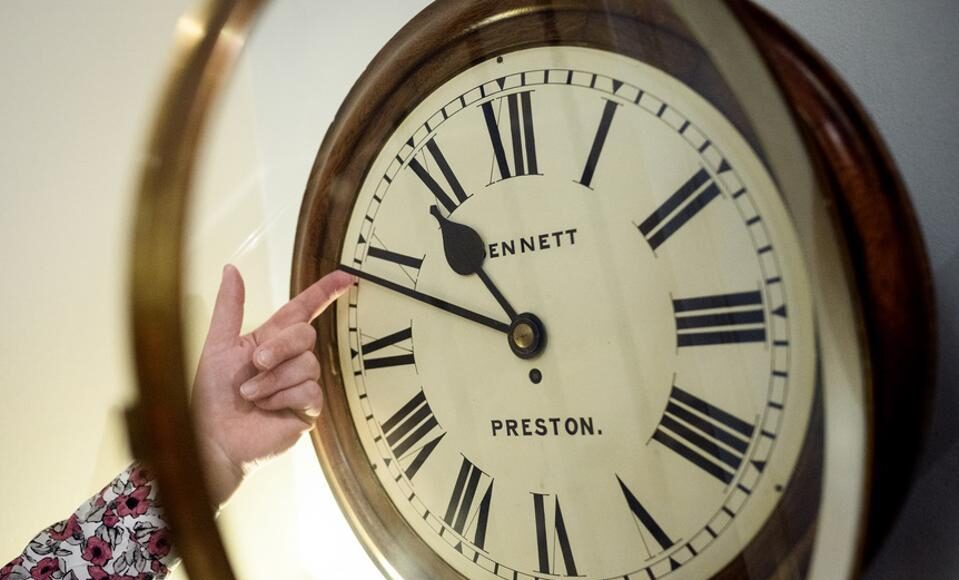Sen. Marco Rubio (R-Fla.) reintroduced a bill to make daylight saving time permanent as Americans prepare to once again spring their clocks forward and as bipartisan calls to do away with changing the clocks gain steam in Congress, though the initiative still faces opposition from some Democrats in the House.
Rubio reintroduced the Sunshine Protection Act in the Senate on Thursday, which would shift Americans’ clocks forward one hour for the entire year, ending the twice-yearly ritual of changing the clocks.
The bill, which has bipartisan support in both chambers of Congress, would eliminate standard time (when noon represents the true middle of the day, with equal durations of sunlight in the morning and afternoon), which would lead to darker mornings and later sunsets throughout the year.
Rep. Vern Buchanan (R-Fla.) on Thursday introduced a companion bill in the House, arguing the change would result in “enormous health and economic benefits,” part of a years-long initiative that supporters argue would boost consumer spending, reduce energy use and potentially reduce traffic accidents, workplace injuries and heart attacks in the days following the change in clocks.
Ed Markey (D-Mass.), a longtime proponent of permanent daylight saving time and a co-sponsor of the bill, issued a statement, saying the bill would add “two months’ worth of sun to the American people’s calendar, and eliminate a “tired tradition” of changing the clocks that Americans “are sick of.” Scientists, however, have warned permanent daylight saving time could disrupt Americans’ sleep schedules, causing a phenomenon called “social jetlag” by separating “social and biological time.” A 2019 study published in the Journal of Health Economics found it would also decrease sleep time by 19 minutes, on average. It could also increase the risk of certain health issues, including diabetes, heart disease and obesity, University of Massachusetts Chan Medical School professor Karin Johnson told NBC News.
450. That’s how many bills and resolutions have been proposed at the state level to introduce year-round daylight saving time, according to the National Conference of State Legislators.
Even though the bill has bipartisan support—it was co-sponsored by five Senate Republicans and five Democrats, including Markey, as well as Republican Senators such as Rick Scott (R-Fla.), Rand Paul (R-Ky.) and Tommy Tuberville (R-Ala.)—it’s unlikely to pass the House, where it stalled last November after it passed in the Senate. Speaking at a House Energy and Commerce Committee hearing, Rep. Frank Pallone (D-N.J.) said he supports the idea of eliminating clock changes but had not yet decided whether he would support a switch to permanent standard or daylight saving time. Other states have proposed year-round standard time, including Arizona and Hawaii, which adopted measures in 1968 and 1967, respectively, to observe permanent standard time.
Changing the clocks began in 1918 as part of an initiative to save fuel costs and provide adults with more shopping time in the evening while the sun is still up. Congress left it up to individual states to decide whether or not to implement the change in time, or whether they would opt for it at all—causing a nonuniform time system from state to state. In 1966, former President Lyndon Johnson standardized the daylight saving time with the Uniform Time Act, which was amended in 1996 to extend daylight saving time one month earlier in the spring and the fall, moving the start date from April to March and the end date from October to November. Recent polls have found the majority of Americans are ready to do away with standard time altogether. A CBS News poll conducted last March found 46% of Americans want daylight saving time to be year-round, compared to 33% that prefer permanent standard time and 21% that said they want the time to stay the way it is. A YouGov poll conducted at the same time, however, found 53% of adults support permanent daylight saving time, while 32% favor year-round standard time.
Bill To Make Daylight Saving Time Permanent Now Stalled In Congress, Here’s Why (Forbes)
Set Your Clocks Back Tonight—And No, Daylight Saving Time Isn’t Going Away Yet (Forbes)
The Debate Over Daylight Saving Time Is Not That Simple (Forbes)








